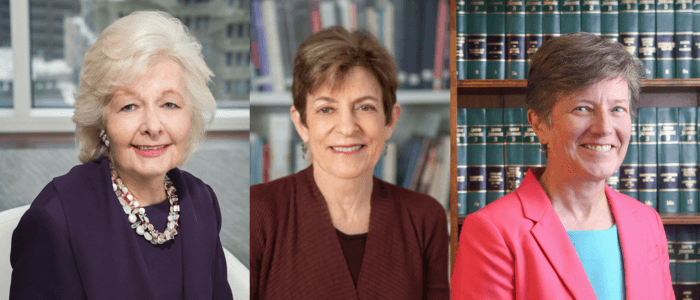A Civil Right: 20 Years of Marriage Equality in Massachusetts

MHS Event
The Hon. Margaret Marshall, former Chief Justice of the Massachusetts Supreme Judicial Court, Nancy Cott, Harvard University, and Mary Bonauto, GLBTQ Legal Advocates & Defenders (GLAD), in conversation with Catherine Allgor, MHS President
This is a hybrid event. FREE for MHS Members. $10 per person fee (in person). No charge for virtual attendees or Card to Culture participants (EBT, WIC, and ConnectorCare). The in-person reception starts at 5:30 and the program will begin at 6:00.
Twenty years ago, in May 2004, the Massachusetts Supreme Judicial Court’s ruling in Goodridge v. Dept. of Public Health legalizing same-sex marriage in Massachusetts took effect. The ruling made Massachusetts the first state to legalize gay marriage. Mary Buonato, a civil rights advocate who has been working with GLAD since 1990, will discuss her role representing the couples in the Goodridge case. Professor Nancy Cott will explain the part that a historians’ amicus brief played in this case and others. Former Chief Justice Margaret H. Marshall will discuss the import of Goodridge, as well as the reaction to it. In conversation with MHS President Catherine Allgor, our speakers will reflect upon this landmark case, and the role historians may play in legal cases.
Hybrid Event
The in-person reception starts at 5:30 PM and the program will begin at 6:00 PM. If you have questions about the in-person event, please contact Olivia Sayah at 617-646-0580 or osayah@masshist.org.
Masks are optional for this event.
By registering you are agreeing to abide by the MHS Visitor Code of Conduct.
The virtual program begins at 6:00 PM and will be hosted on the meeting platform Zoom. Registrants will receive a confirmation message with attendance information.
